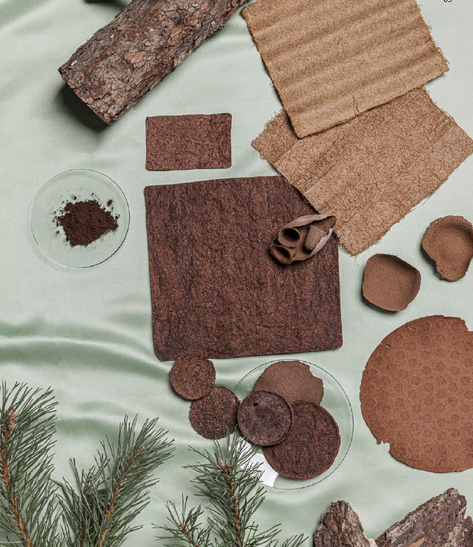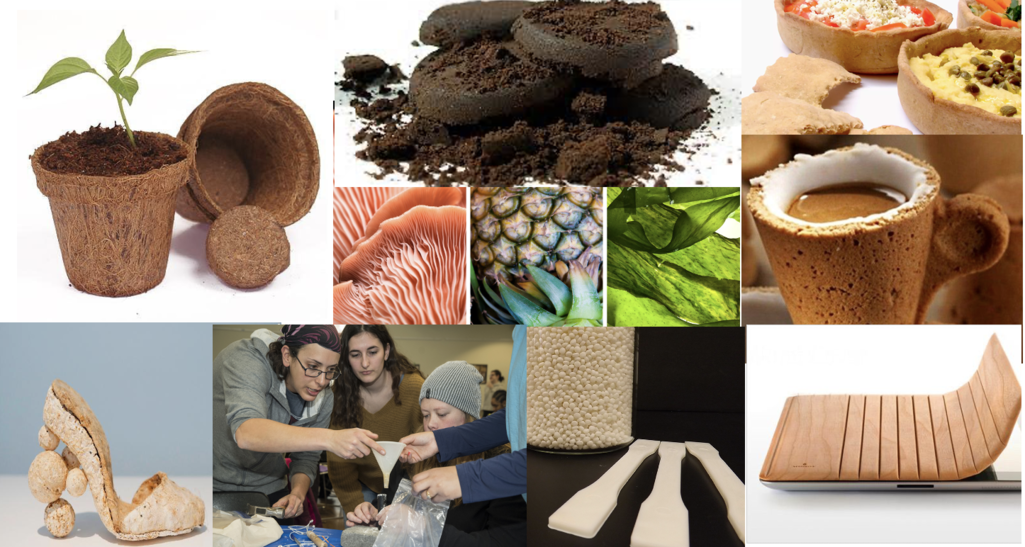Materials & Manufacturing
Imagine using a starch-based material to make an edible lunch box. Or designing a bio-based cover for a tablet. Why not use a corn starch-sand mixture to make a flower pot or a mussel shell composite to 3D-print a ceramic lamp? This course examines the use of bio-based materials, making new materials through the re-use of waste streams.
On a global scale scientists and designers are looking for sustainable alternatives to carbon based organic materials. New ecological materials can be designed by extracting materials from bio waste-streams like coffee waste, fruit waste, wood chips, starch and/or any other bio-based materials. In this course, we envision creating a green future starting with awareness about bio-based materials around us. In the materials and manufacturing elective course, you explore how to make, process and test new materials from bio-waste streams.
Learn to work with appropriate tools which are needed to design with such new (and often not yet existing) material composites. How can you best make, test and model a product made with a new material designed by yourself? Manufacturing, testing and user aspects of specific case studies will be the focus in this elective.
The content of this course is relevant for IDE students, because you will gain knowledge and insight on how selection of appropriate manufacturing techniques and of materials will condition the design of a product. The technical performance and experiential functionality of finished products is ultimately determined by underlying materials and manufacturing characteristics.



